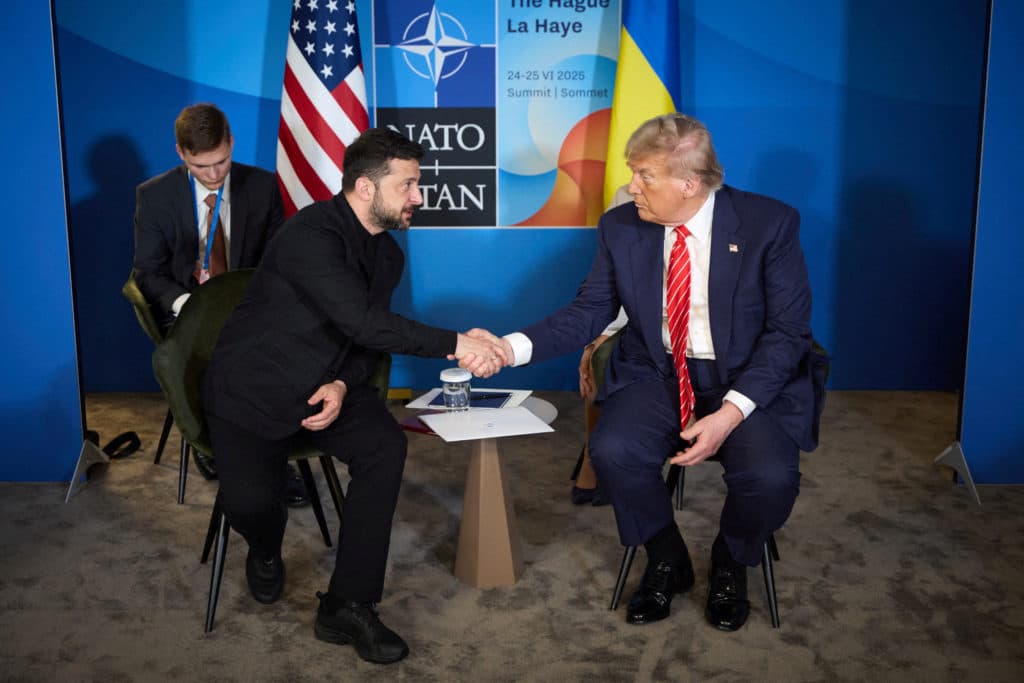Trump Advocates Shooting Down Russian Jets Violating NATO Airspace Amid Escalating Tensions

New York – U.S. President Donald Trump stated on Tuesday that NATO nations should shoot down Russian aircraft that violate the alliance’s airspace. The declaration came during a meeting with Ukrainian President Volodymyr Zelenskyy on the sidelines of the 80th United Nations General Assembly in New York, marking a significant hardening of his stance on Russian aggression.
"Yes, I do," Trump affirmed when asked by a reporter if NATO countries should engage and shoot down Russian aircraft entering their territory. This assertive comment follows a series of recent airspace incursions by Russian jets and drones that have heightened tensions across Europe. Estonia reported three Russian MiG-31 fighter jets breached its airspace for 12 minutes last week, while Poland observed multiple Russian drone violations earlier in the month.
The President's remarks represent a notable shift from his previous positions, which often included a more cautious approach to confronting Russia. Secretary of State Marco Rubio had earlier indicated that the U.S. would not shoot down Russian jets unless they were actively attacking, highlighting a potential divergence within the administration. Despite this, Trump also expressed newfound confidence that Ukraine could "fight and win back" all its lost territory, a departure from earlier suggestions that Kyiv might need to concede land.
NATO has responded to the recent violations by issuing a warning to Russia, condemning Moscow's "increasingly irresponsible behavior" and vowing to use "all necessary military and non-military tools" to defend its territory. The alliance has been actively scrambling jets to intercept Russian aircraft, with incidents in Polish and Estonian airspace prompting calls for increased vigilance and defense measures. Trump's latest comments underscore the escalating geopolitical risks and the growing pressure on NATO to adopt a more robust response to Russian provocations.